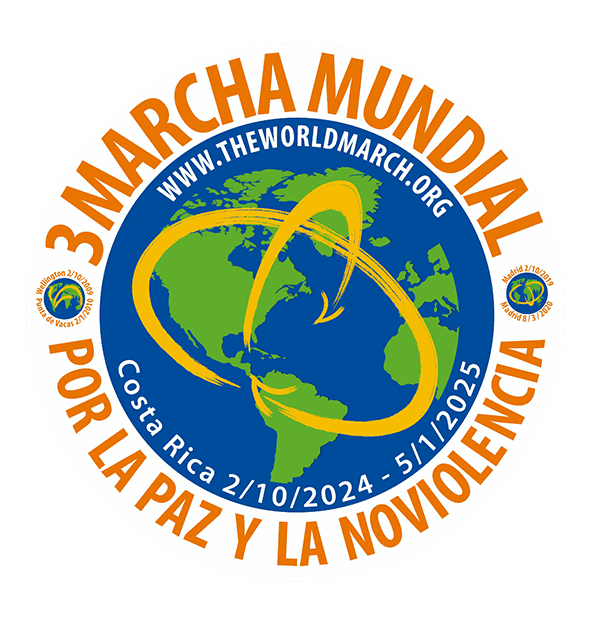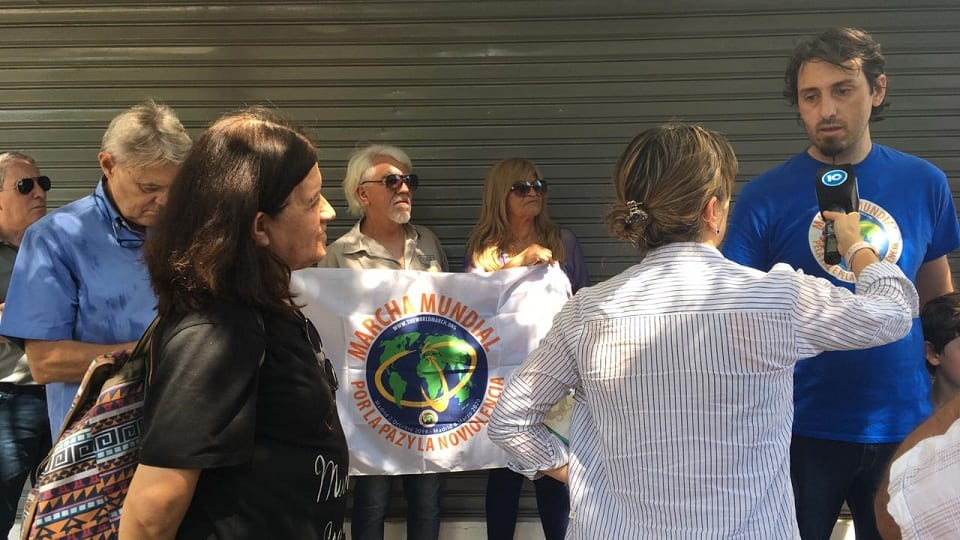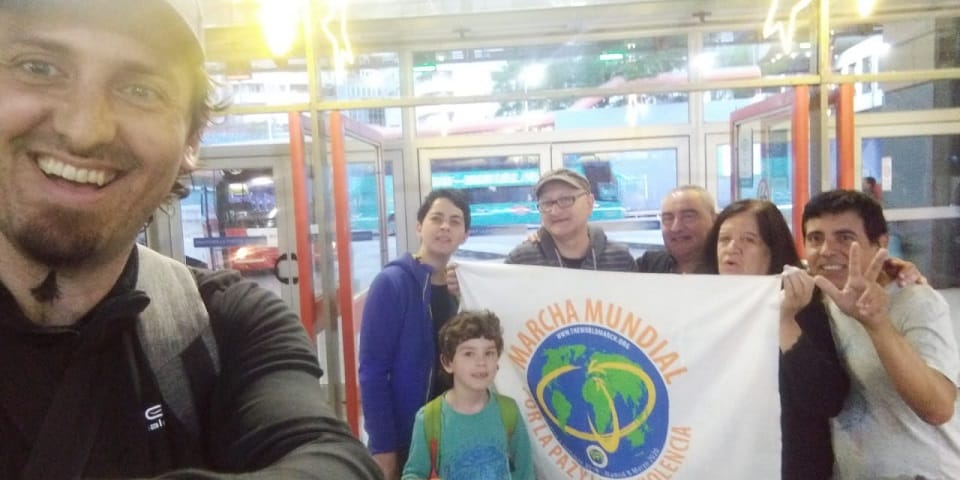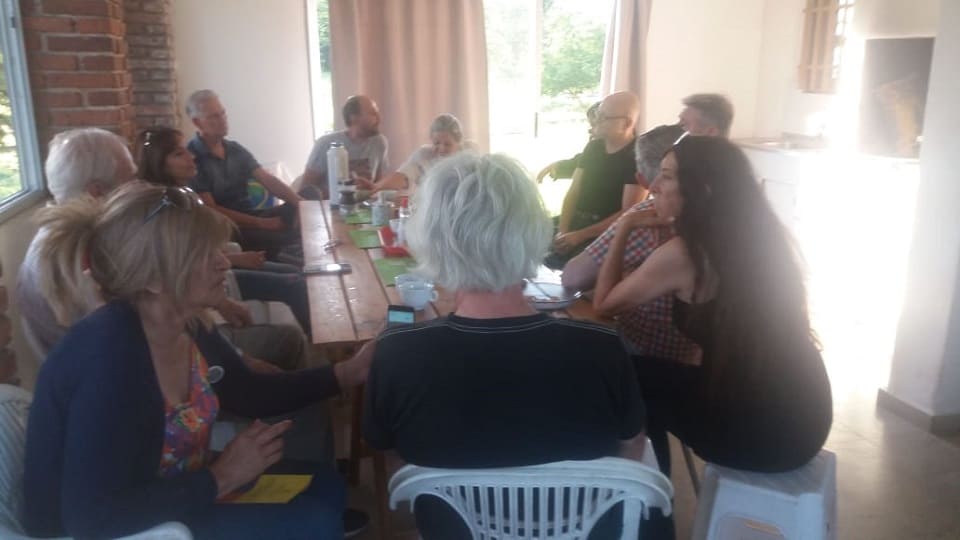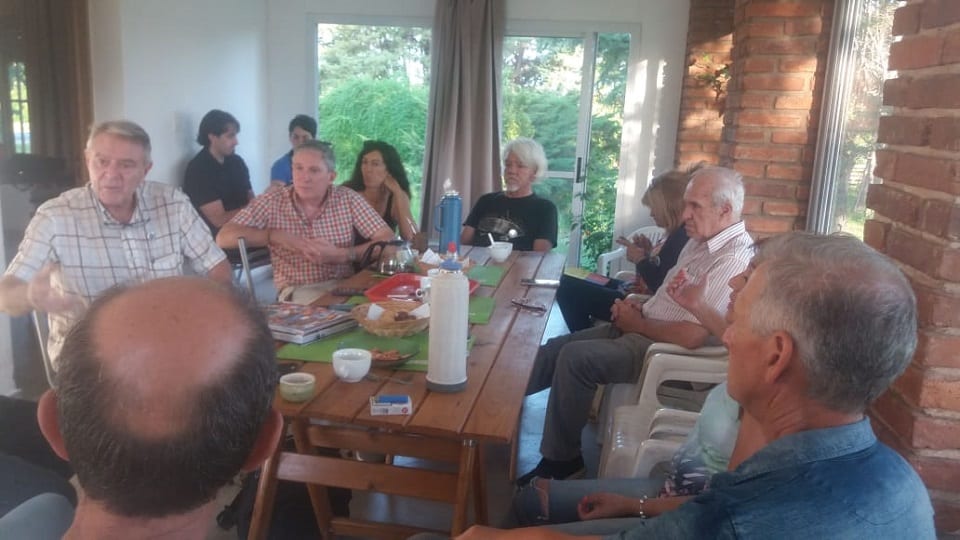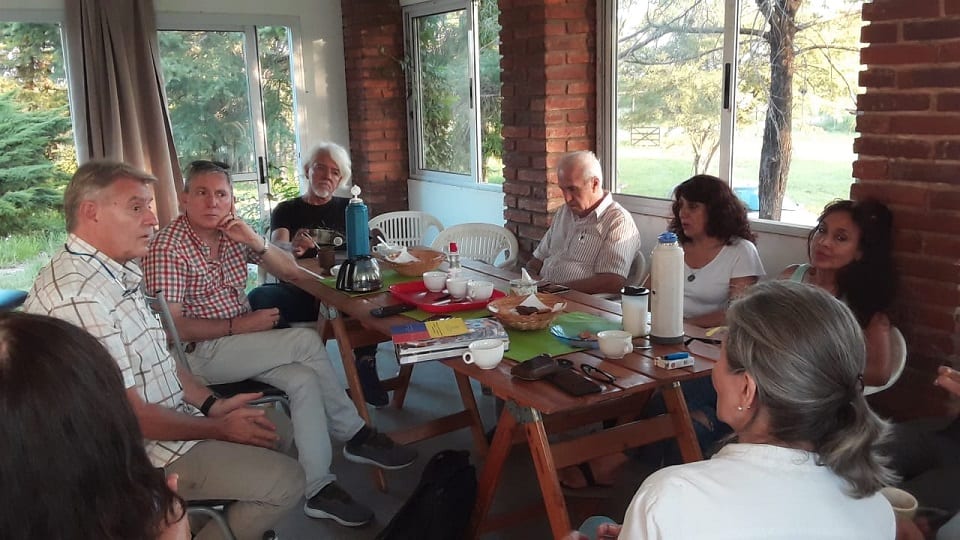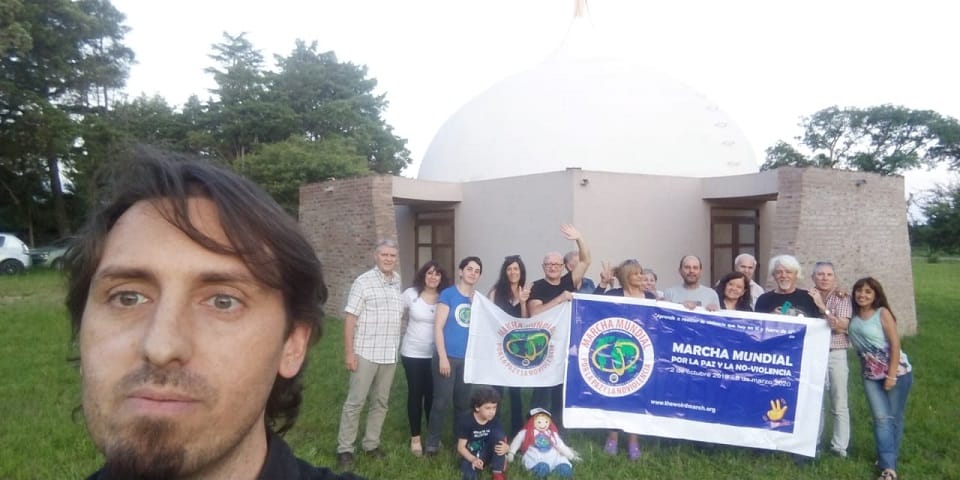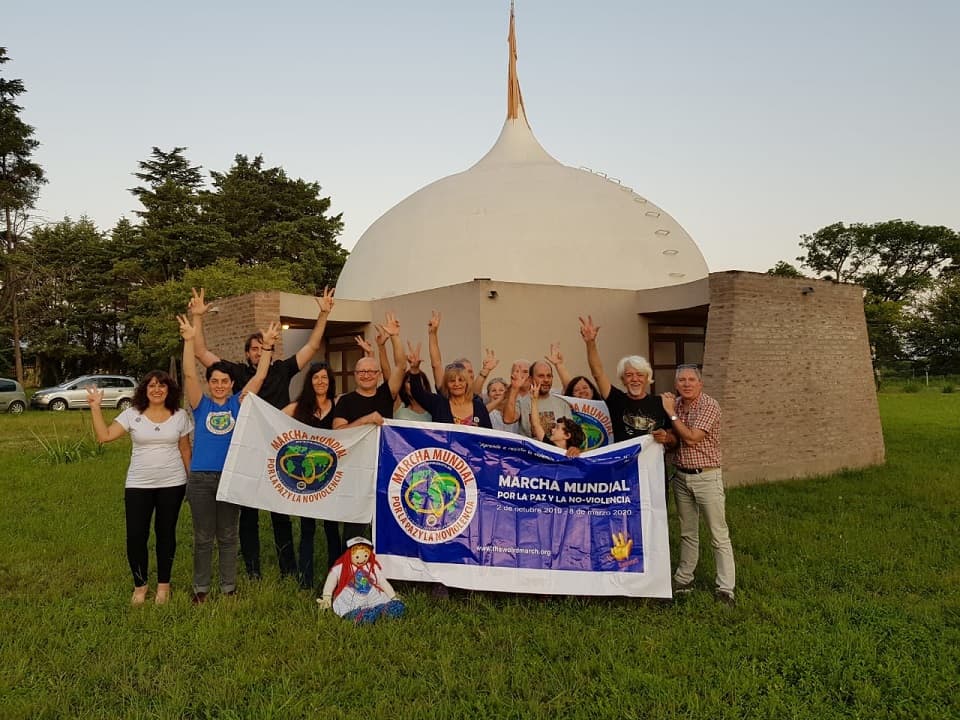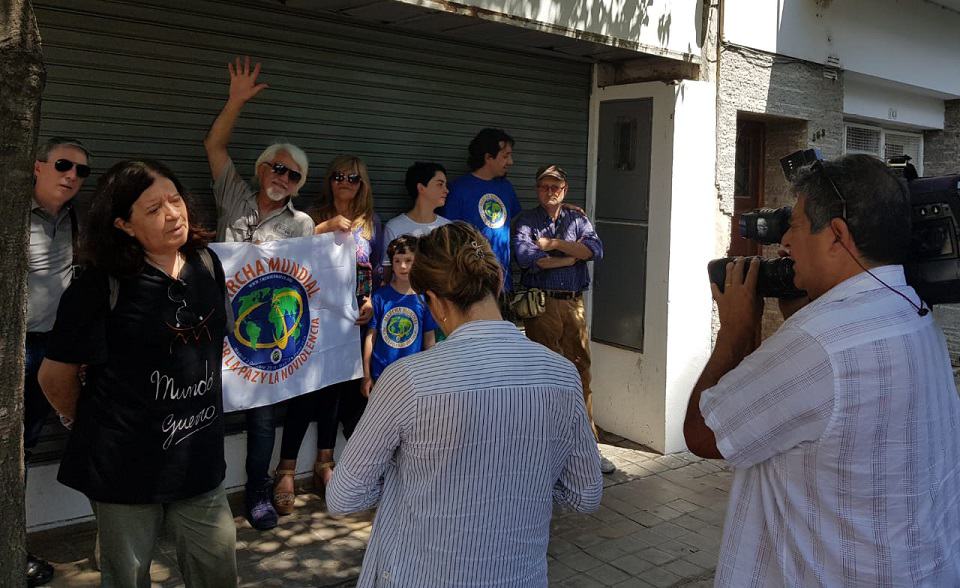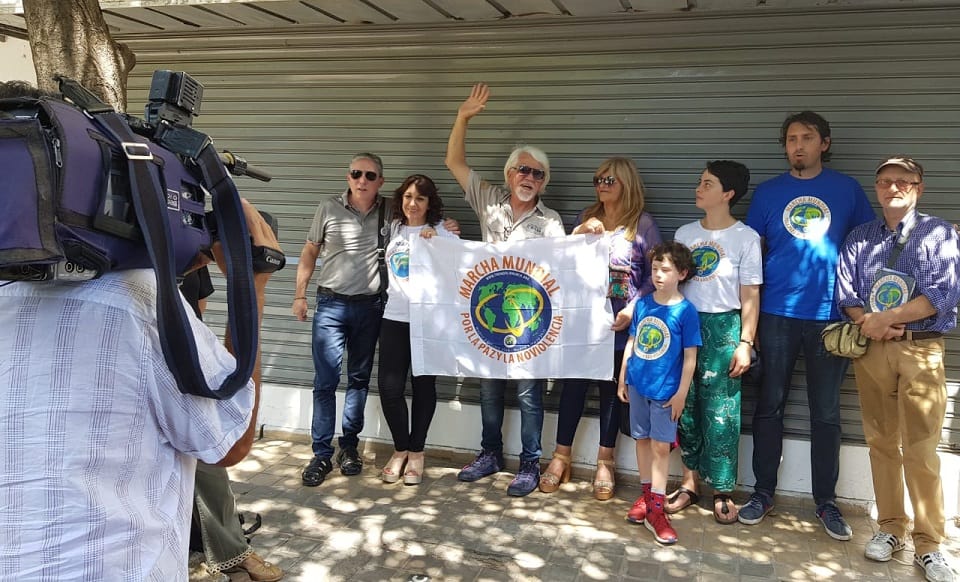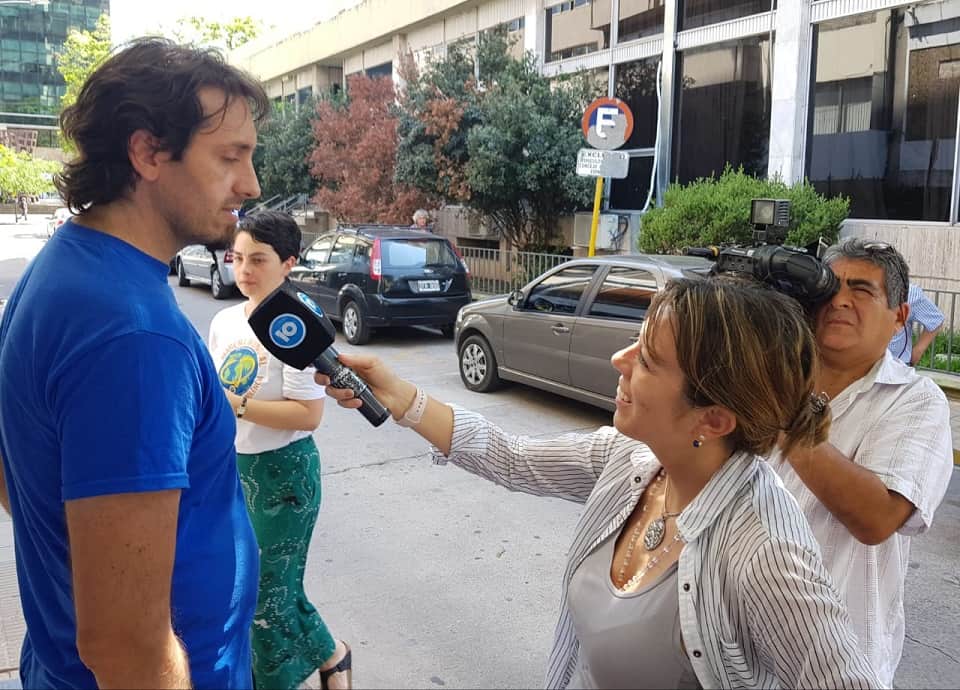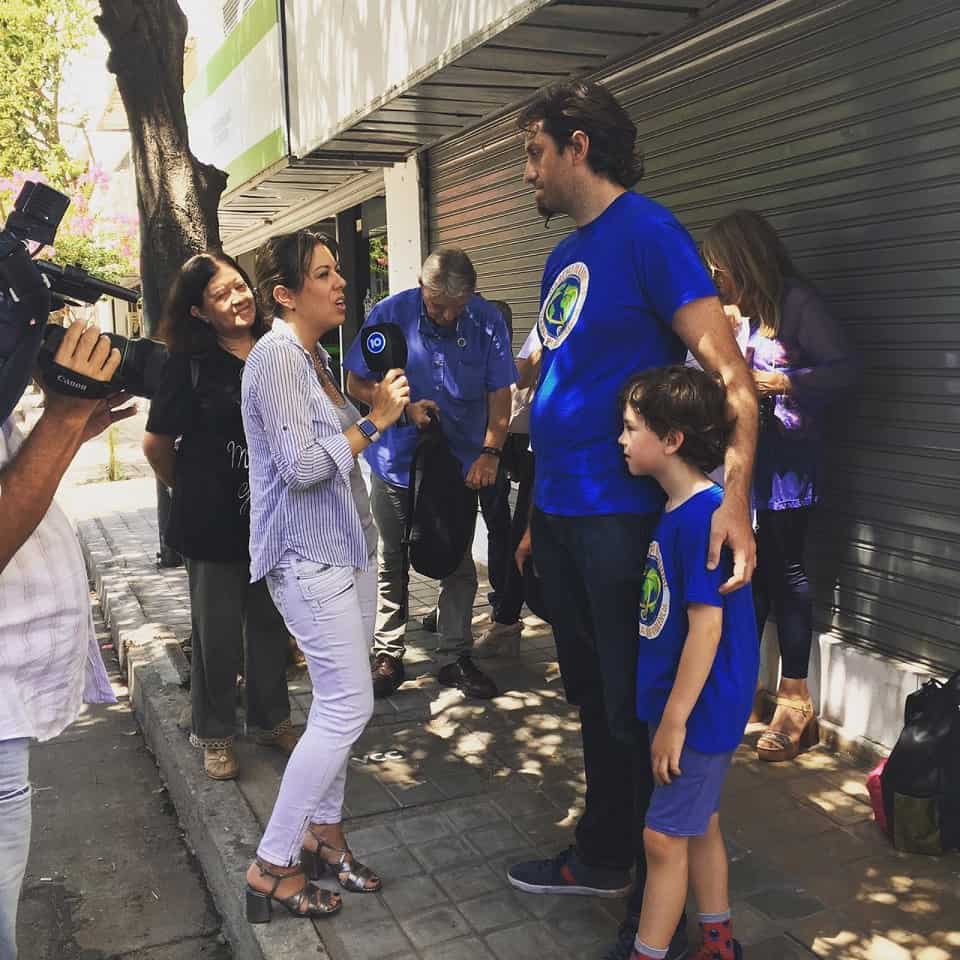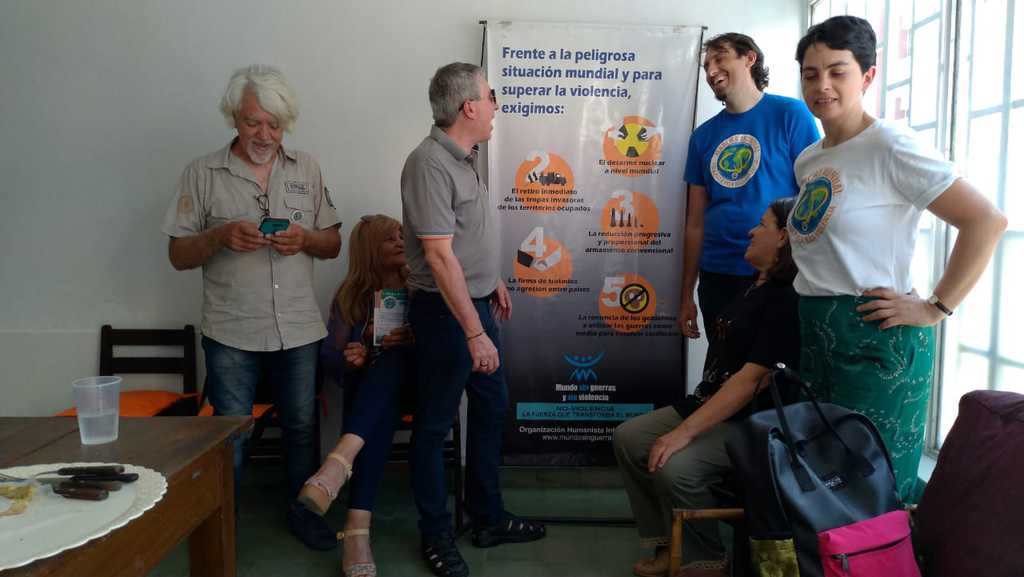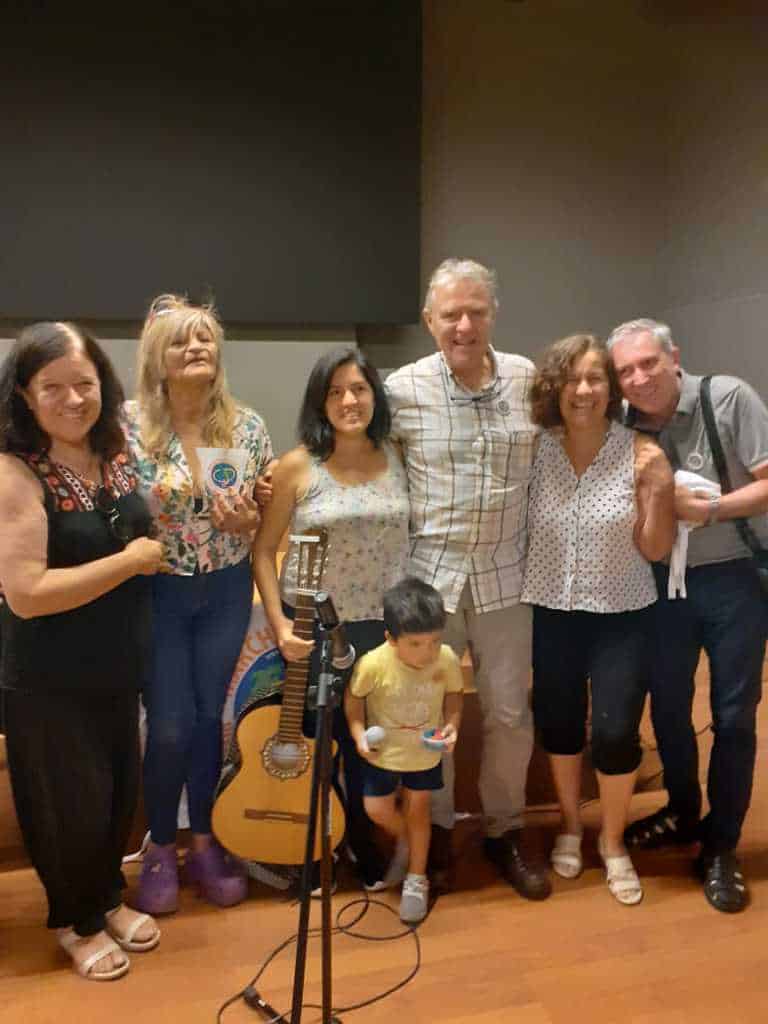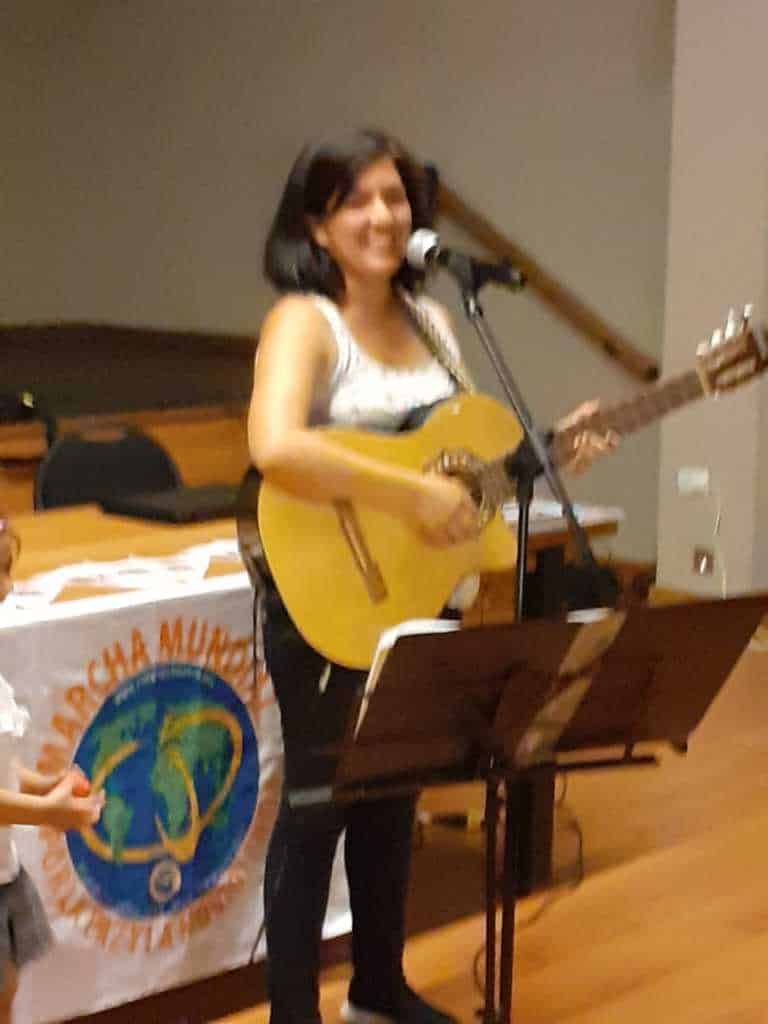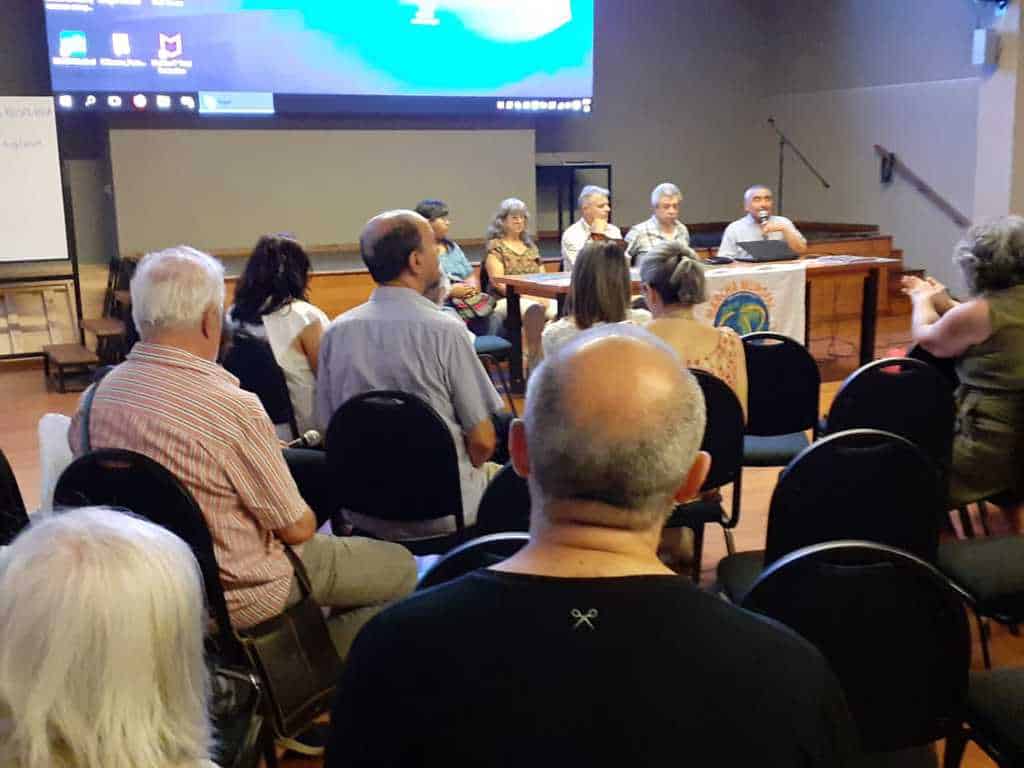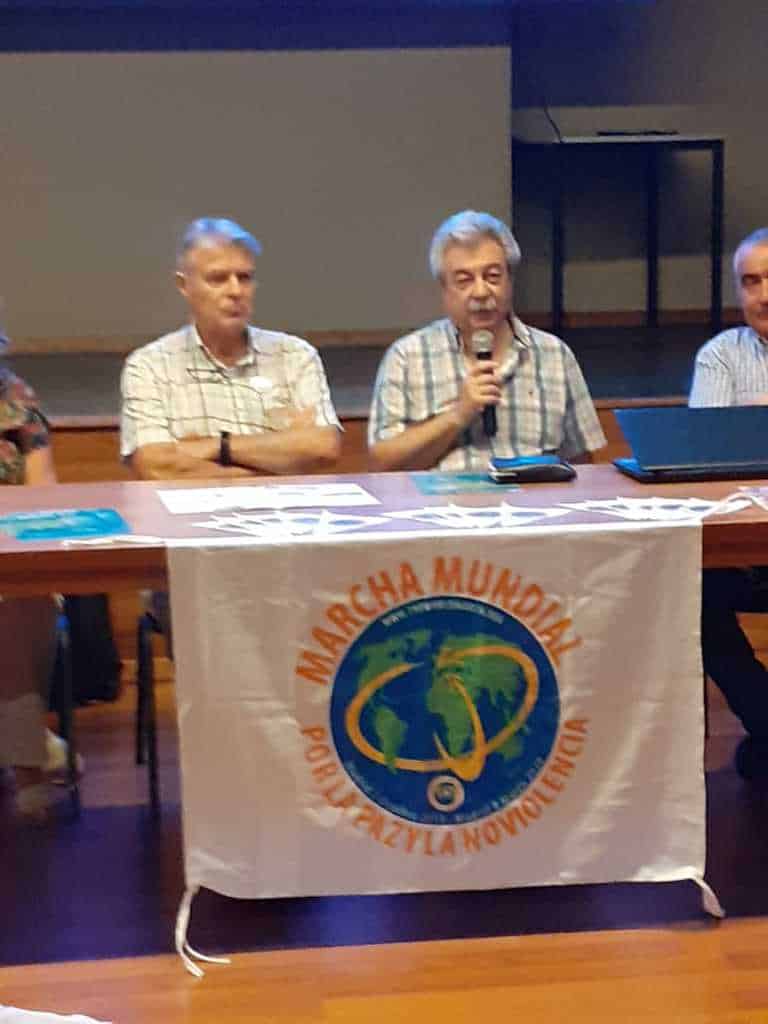The International Base team has been in Córdoba on the 26th and 27th.
On the 26th they were received by the team promoting the March in Córdoba and some of its members moved to the Paravachasca Study and Reflection Park.
On the 27th, the Base Team was interviewed by the RNA in Cordoba, later it was received in the Deliberative Council of Cordoba and finally it met in the Humanist House of Cordoba in a debate.
Of the blonde was interviewed by Aldo White
Rafael de la Rubia was interviewed by Aldo Blanco of Radio Nacional Argentina in Córdoba.
The interviewer, after giving the context that the 2ª World March for Peace and Nonviolence was occurring at this time 10 years after the 1st March.
And that it seeks to raise awareness, make visible positive actions, give voice to new generations struggling to express themselves with nonviolent action.
Asked of the blonde on the themes of the March.
In summary, Rafael de la Rubia said that he has visited 90 cities and that the march has already passed its halfway point.
Reasons for the march are plenty and it is seen that as the march progresses they are increasingly visible.
We have attended a variety of social explosions and that some of them result in violence.
And obviously, social protest is legitimate, but the signs of the times have changed and all protest action must be carried out with this nonviolent sense.
We must take care to promote nonviolence as a methodology in the expression of social protest so that it does not lose its legitimacy and multiply its effectiveness.
This is something that must be done and that opens the future to the new generations.
Argentina as advanced the fight for Human Rights
The interviewer puts Argentina as a world leader in the fight for human rights.
There are more and more different groups, for different issues, such as green scarves, for free abortion, or now with the issue of water ...
New themes and new groups that have to do with Nonviolence appear every time.
De la Rubia said that it cannot be that water is considered a scarce commodity to charge more expensive than gasoline as it already happens in some places, but rather to take care of it. It is a primary necessity, indispensable for life.
Water has to be of good quality and cheap, as a right.
Regarding the culture of Nonviolence, Rafael de la Rubia said that education is important, but we must pay attention to what is meant by this and clarify.
Do not think about educating in the sense of shaping. A special sensibility is already being seen in the new generations.
It is being demonstrated in many cases that these new generations are more aware than many adults and it is they who take the lead in teaching the old generations.
An upcoming South American March is being defined
Finally, Rafael de la Rubia pointed out that a South American march is being defined to do it in a year or a year and a half. Because you have to give a signal that invites South America to join.
In this March we will transfer to the new generations the question of what America they want. We know, from the tests we have done, when they are asked this, they are excited to enter the debate.
Subsequently, the Base Team of the 2nd World March was received in the Deliberative Council of Córdoba.
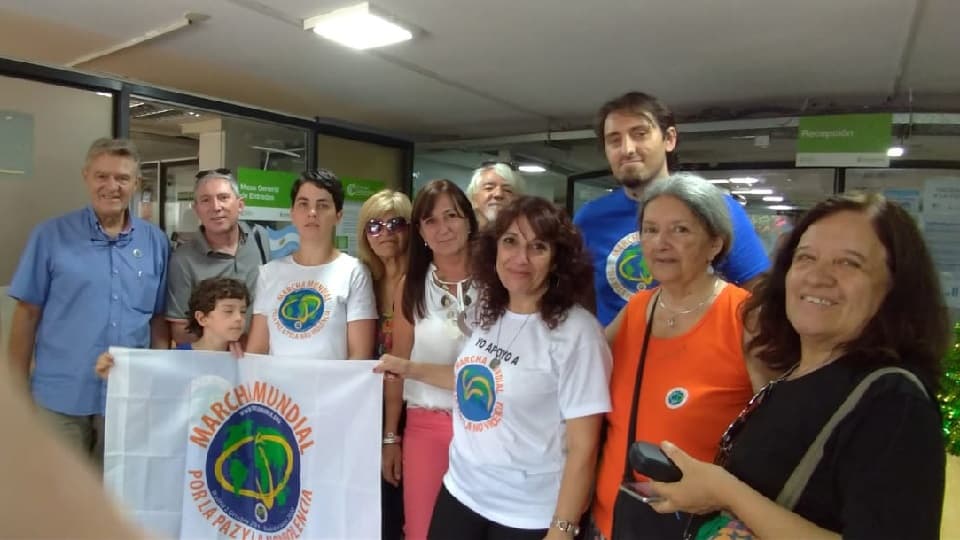
The Base Team also visited the Humanist House of Córdoba.
The human right to live in peace
Finally, in the hall of the Union of Educators of the Province of Córdoba, the Base Team was in the debate on “The human right to live in peace”With the presence of human rights referents in Córdoba, referents of the Syrian and Bolivian communities.
In the discussion table participated:
- Eduardo Gonzalez Olguin, economist of the popular field, professor at the University of Córdoba.
- Sara Weisman, member of the permanent Human Rights Bureau of Córdoba.
- Isabel Melendrez representative of the Bolivian community.
- Javier Tolcachier of the Center for Humanist Studies of Cordoba.
- And Rafael de la Rubia, coordinator of the World March.
Finally, they finished with a camaraderie dinner.
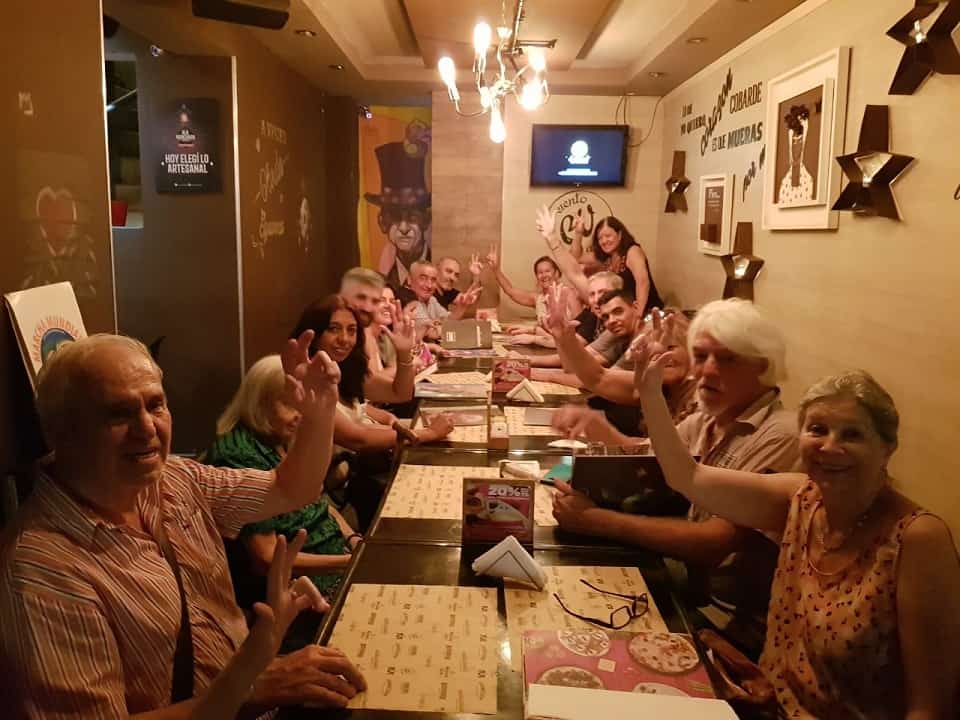
We appreciate the support with the dissemination of the web and social networks of the 2 World March
